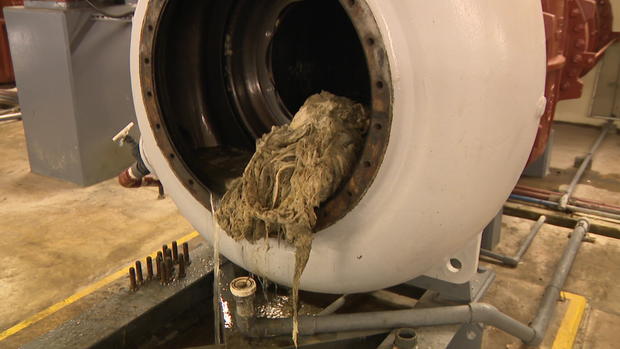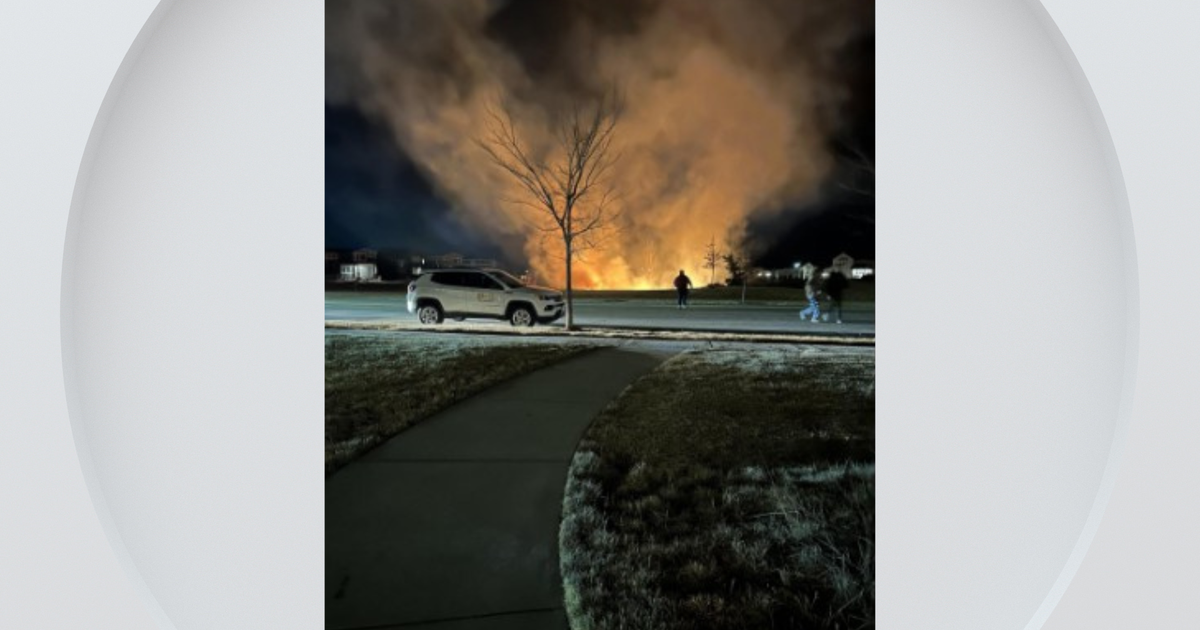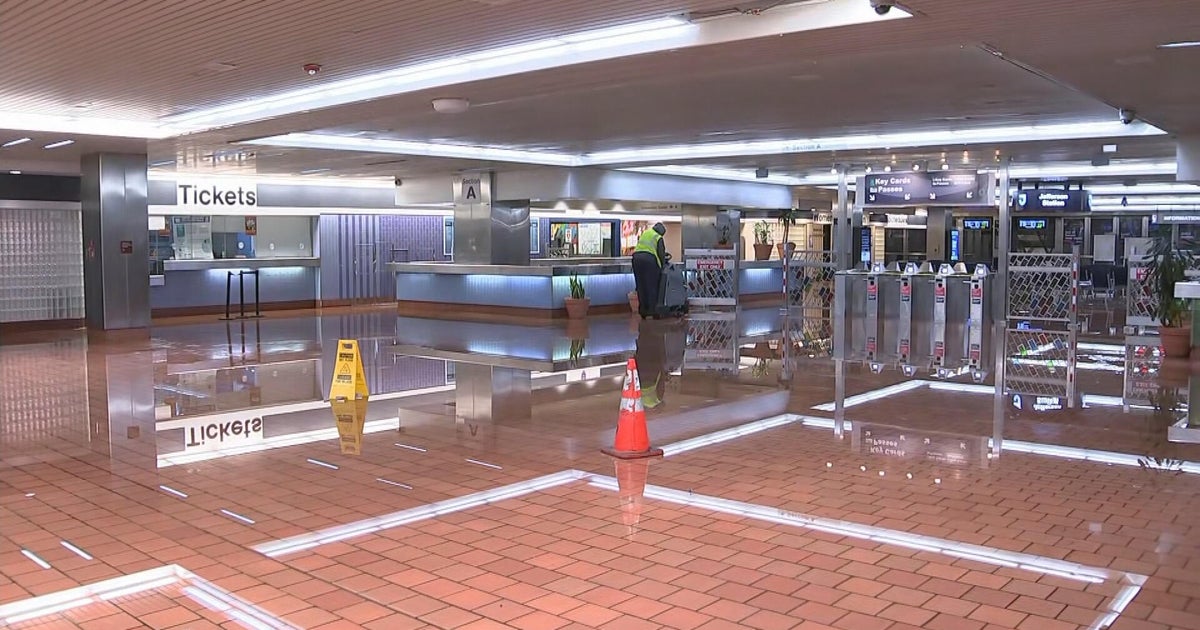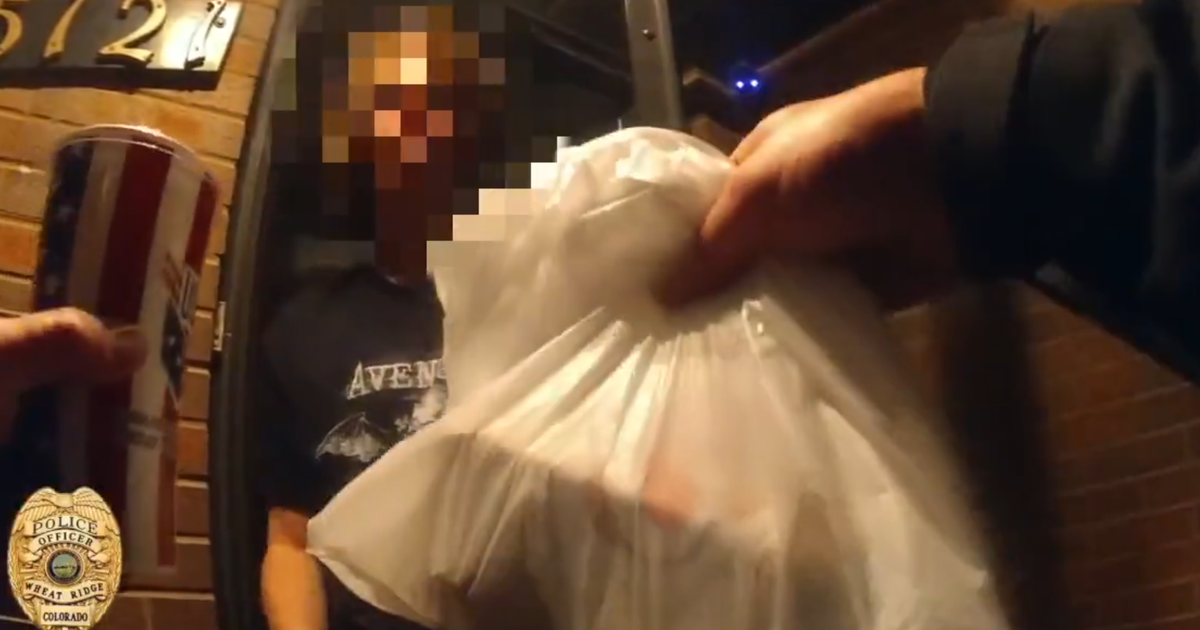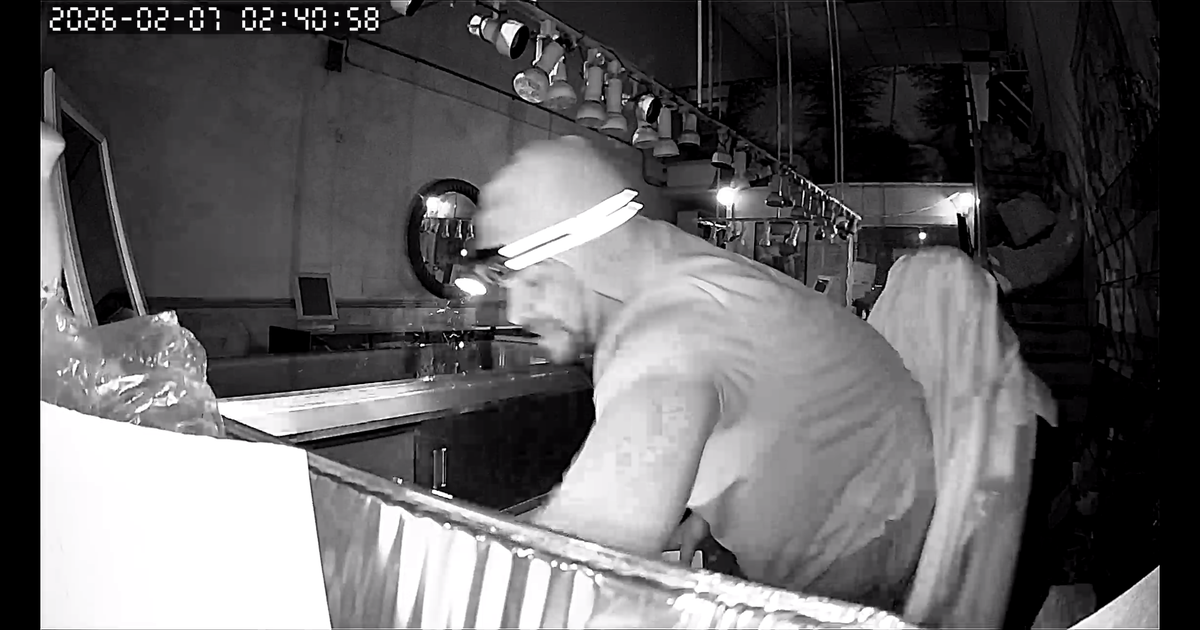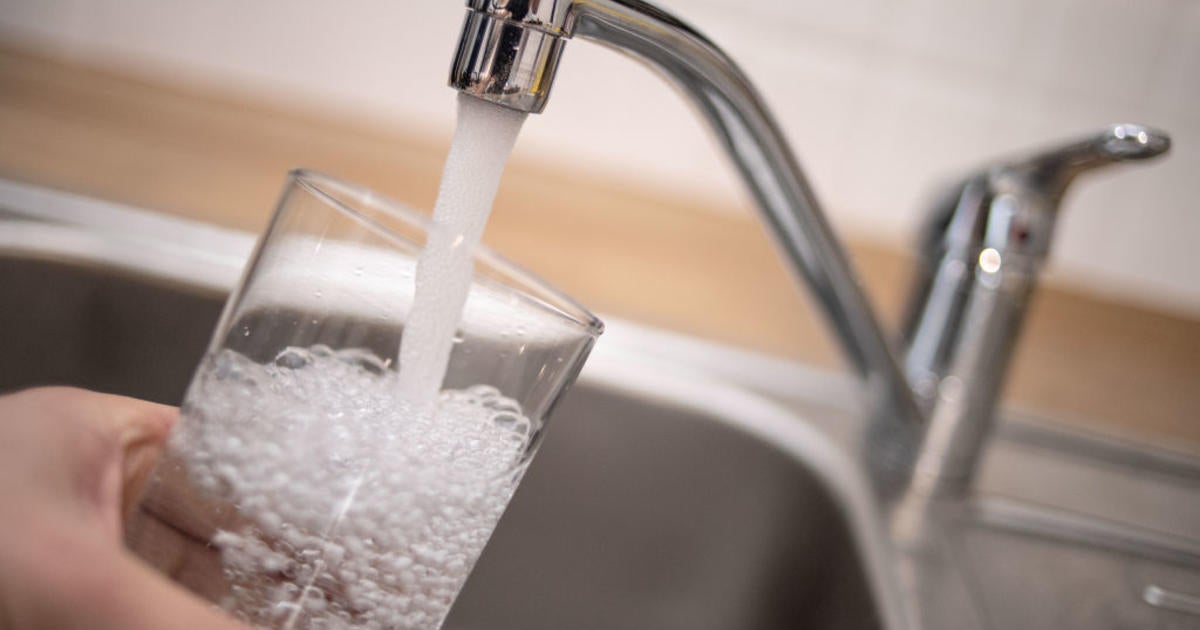Wipes Clogging Up Miami-Dade Sewer System
MIAMI (CBSMiami) – Those single-use flushable wipes are popular, but are they causing an even bigger mess?
The answer is yes if you ask officials at the Miami-Dade Water and Sewer Department who say those wipes, including the ones marketed as flushable, are clogging the sewer systems.
After being flushed, the journey of your wipe starts with the pipes under your home, where Miami-Dade Water and Sewer Department (WASD) crews use tiny robot cameras to get in and look for problems.
Jose Valladares, a sewer inspection technician, showed CBS4 what the camera footage looked like under the ground.
"The grease, the wipes they throw down the toilet, that's what they create when you put that all together," said Valladares. "It adds up like I said, the rags."
Rags are classified by WASD as items that do not break down in sewer water including paper towels, clothing, hair, female products, hygiene products, and wipes: both non-flushable and flushable.
There isn't a way to tell which wipes in the pile are the flushable ones once they go down your toilet, but they go from the pipes under your home to the regional pump stations.
"There's no telling what else we'll find," said Randy Erion, a plant mechanic with the WASD. "Ropes, pieces of cables, we see tons of toys."
Erion has seen a lot of change in his nearly two decades of working as a plant mechanic.
"When I started here 18 years ago, we'd come maybe once a month and unclog one of the pipes," said Erion, "Slowly gotten more and more often, 3 times a week sometimes."
Erion adds that unclogging each pump takes about five hours, taking time away from other tasks necessary to maintain our sewer systems. The pumps are an important part of the process as pressure is needed to push the swear water through the county.
If your wipe has not been caught by the time it gets to the pump station, it will end up at a wastewater treatment plant where the rags build up.
Jennifer Messemer-Skold, the media public relations officer for WASD, says they have to get rid of 300 tons of rags in a month.
Those rags are going to cost you, the customer.
According to WASD, it costs about $200,000 a year just to haul the rags at the pump stations and treatment plants to the landfills, so they can be disposed of properly. Last year, WASD spent more than $525,000 to unclog more than 650 blockages within the thousands of miles of sewer lines. Add about $2.7 million dollars a year for labor, materials, and tools, and the total cost to deal with rags annually is about $3.5 million dollars.
"Stop and change your habits, so it protects you and your wallet," said Messemer-Skold.
Companies like Kimberly-Clark stand by their product, saying that their flushable wipes are not part of the rags problem.
"We've seen flushable wipes being cited as the cause of these clogs," said Terry Balluck," a company spokesperson. "That's like blaming cyclists for downtown traffic."
In fact, adds Balluck, people flushing non-flushable wipes is why the company introduced flushable ones in the first place.
"Cottonelle flushable wipes offer consumers the right choice that does the job, because they break down after flushing," said Balluck. "[Our wipes lose] 75% of its strength in a residential drain line within 30 minutes of flushing, before it reaches the municipal sewer system," said Balluck.
"Even if wrappers say flushable, we're asking [you not to]," said Messemer-Skold from WASD. "Items are not breaking down fast enough."
Dave Rousse, the President of the Association of the Nonwoven Fabrics Industry (INDA), said a series of tests have been developed after consulting with wastewater representatives. Only wipes that pass the seven tests and be used in a bathroom setting can be marketed as 'flushable wipes.' Baby wipes would not count, even if they pass the tests.
Balluck refers to multiple sewer analysis studies to support the company's claims, including a study done by NYC DEP, where nearly 91% of the rags were non-flushable wipes and paper products.
"Not a single Kimberly-Clark flushable wipe was found," said Balluck.
That was also the case for a study in Jacksonville, according to Balluck. So, the fight over flushable wipes continues, but both sides want a working sewer system.
"Only thing you should be flushing is number 1, number 2, and toilet paper," emphasized Messemer-Skold. "No matter what the wrappers says, just stop the clog and dump it in the trash."
